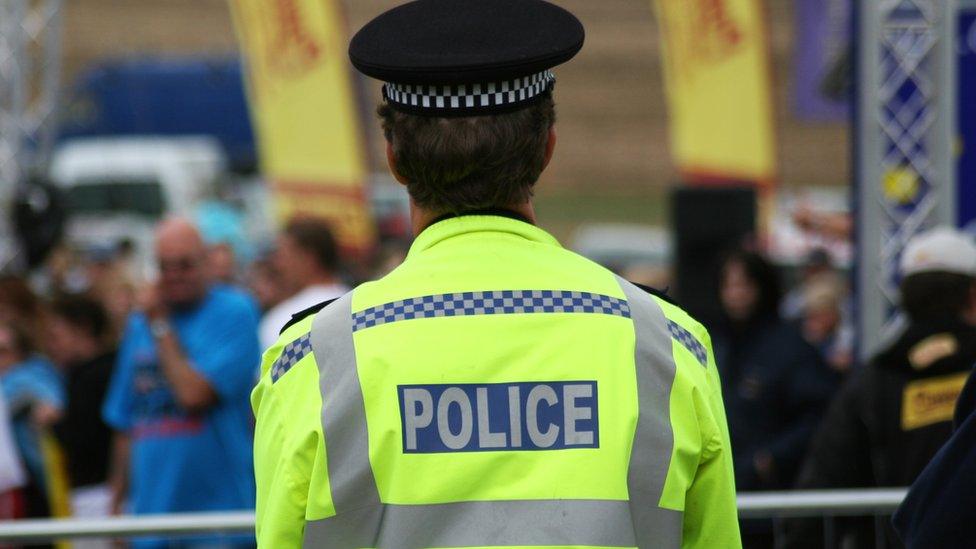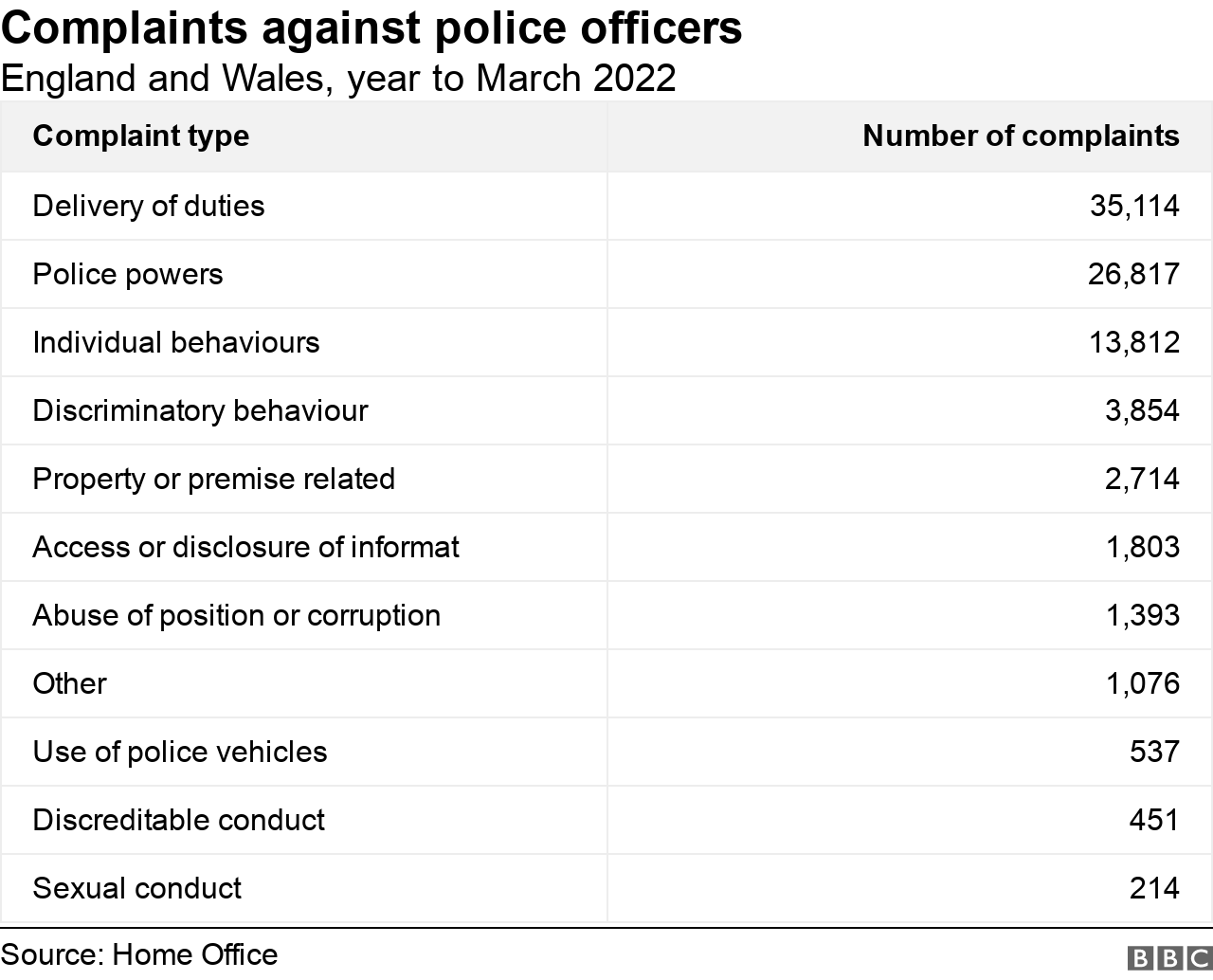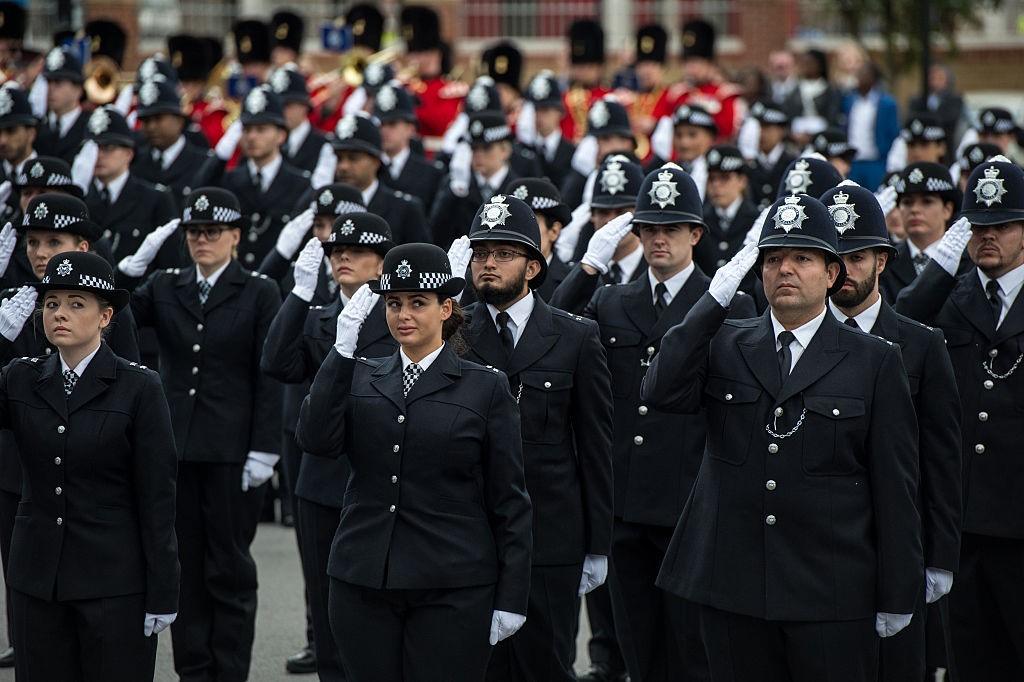How many complaints are made against police officers, and how many are sacked?
- Published

Police officers found guilty of gross misconduct in England and Wales will face automatic dismissal under government plans.
There were almost 88,000 complaints against officers in the year to March 2022.
What happens when a complaint is made against a police officer in England and Wales?
Each police force has a professional standards department which investigates complaints about its officers.
Minor complaints - such as poor performance - can result in a "learning outcome". This involves a discussion with the officer, followed up by a report.
More serious complaints about behaviour which breaches police standards, external - such as use of excessive force - can lead to a misconduct hearing.
Possible sanctions following a misconduct hearing include:
a written warning
a final written warning
demotion
dismissal
Investigations that may involve serious misconduct - such as those involving a death in police custody - are overseen by the Independent Office for Police Conduct (IOPC).
How is the police complaints system changing?
Under the new system, officers who are found guilty of gross misconduct will automatically lose their job, unless "exceptional circumstances" apply.
Misconduct panels will be chaired by chief constables or other senior officers. At the moment these are run by an independent lawyer.
The rules about how serving officers are vetted will also be changed, enabling those who fail re-vetting checks to to be sacked.
Policing minister Chris Philp said the new rules would target the "small minority of police officers who let down the police force, and therefore let down the public".
But the Police Federation, which represents rank and file officers, warned against "a return to kangaroo courts".
How many complaints are made against police officers?
According to the most recent statistics, there were 87,786 complaints recorded against police officers, external in England and Wales in the year to March 2022.
This involved more than 115,000 allegations (a single complaint can contain multiple allegations against multiple officers).

During this period, 414 officers were found guilty of misconduct, and 284 officers were found guilty of gross misconduct.
Of the latter group, 93 were dismissed, and a further 133 would have been dismissed had they not already resigned or retired. Fifty eight officers did not lose their job.
Do officers get paid while under investigation?
Suspended officers are removed from duty, but continue to receive full pay.
If an officer is convicted of a serious criminal offence - carried out in connection with their duties - forces can apply for up to 65% of their pension to be taken away, external.
Retired officers - or those who have resigned - can still face disciplinary measures. If found guilty of gross misconduct, a former officer can be placed on a barred list, and prevented from serving in any future police role.

Protesters demonstrate outside the Met's headquarters following the murder of Sarah Everard, who was killed by a serving police officer
How are police vetted?
Before new officers are recruited, they undergo a vetting process - to identify potential risks to public safety or national security.
The checks are carried out by individual forces and cover:
criminal history
employment history
credit history
social media use
College of Policing guidance, external says that all cases should be rejected where the applicant has committed an offence which resulted in a prison sentence, or where the applicant is a registered sex offender.
Failure to disclose information can also lead to a rejection.

What concerns have been raised about police vetting?
Met Commissioner Sir Mark Rowley previously warned that the current vetting rules were open to interpretation.
Some officers have given false or incomplete information, according to HM Inspectorate of Constabulary and Fire & Rescue Services (HMIC), a police monitoring body.
Its report followed the 2021 murder of Sarah Everard, by serving Met police officer Wayne Couzens.
Despite being accused of indecent exposure, Couzens was able to transfer to the Met.
Another officer, former Met officer David Carrick, was sentenced to a minimum of 30 years for a series of rape and sexual offences in February 2023.
He had remained in post despite multiple misconduct allegations.
How has the Met changed the way it handles complaints against officers?
In April 2023, the Met said its own work tackling rogue officers had led to a 70% increase in dismissals in six months, external. It said the force was building a new "re-vetting" system.
This followed Baroness Casey's review of the Met, published in March 2023, which found that racism, misogyny and homophobia were at the heart of serious failures within the UK's largest police force.
The review made 16 recommendations, including an immediate overhaul of vetting in order to "guard against those who intend to abuse the power of a police officer".
Some critics still want more independent monitoring of police standards:
"The police train their own, they monitor their own, they review their own," said Anna Birley, co-founder of social justice organisation Reclaim These Streets.